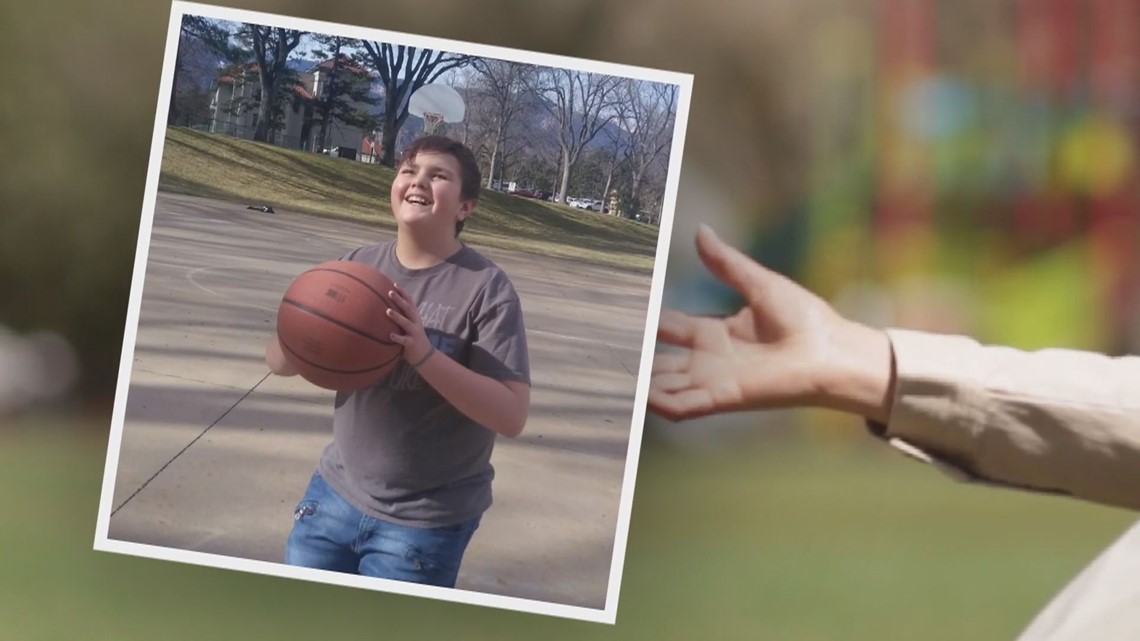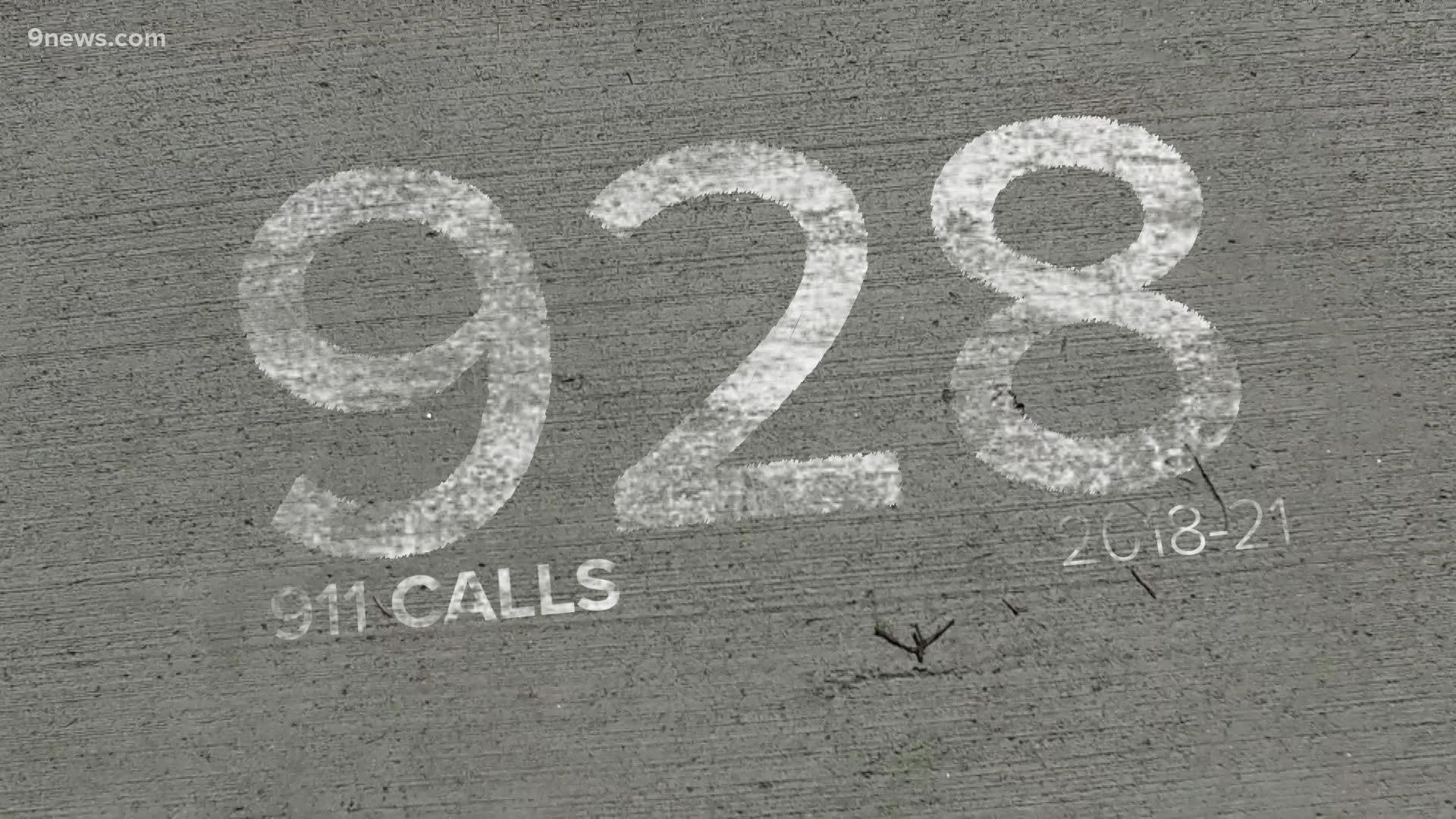DENVER — Colorado authorities have “no obligation” to find a foster child who has run away, and the child welfare cases of missing kids are often closed due to a lack of funding, according to a new report requested by lawmakers.
The report from a task force named after Timothy Montoya, a 12-year-old boy who ran away from a residential center and was struck and killed in the night by a vehicle, found that Colorado lacks adequate data to keep track of how long kids are missing from the foster system and the reasons they ran away.
The task force was ordered by the state legislature after a joint investigation by The Colorado Sun and 9NEWS in 2021 into the number of runaways from youth residential treatment centers. The investigation, which involved the news agencies suing the state over the failure to release abuse and neglect information, found that two boys, Timothy and 15-year-old Andrew Potter, died after leaving Denver-area centers and being hit by cars.
It also found, through public records of 911 calls, that police were summoned to residential centers numerous times each week to deal with runaways.
But the Colorado Department of Human Services, which includes the child welfare division, refused to release data to the news outlets regarding the number of calls coming from residential centers to the child abuse and neglect hotline. Staff in the centers are required to report any incidents of children leaving the center or of harm that results from altercations between young people, or between a child and a staff member.
The news outlets sued the state over the refusal to release the data, and in a split ruling Thursday, the Colorado Court of Appeals reversed a lower court decision and sided with The Sun and 9NEWS, saying the state should turn over the data. The state can decide to appeal the decision to the Colorado Supreme Court or the district court that first heard the case, however. State officials did not say Thursday whether they planned to appeal.
The department had cited a confidentiality law that prohibits it from disclosing the name and address of a child or family involved in a child abuse report, or whether those reports were investigated. But the judges, on a 2-1 vote, said that confidentiality clause applies only when the address — in this case, the address of residential treatment centers that house hundreds of children throughout a year — would identify a child or family.
The news agencies contend the aggregate data is valuable to the public in order to assess the safety of residential treatment centers. State law prohibits the centers from locking children inside and prohibits staff from using physical force to stop them from leaving.


The 2021 news investigation found that after Timothy’s death, Denver child welfare officials determined that what happened to him did not fit the state’s criteria for a child fatality investigation. His death, which happened after he ran from Tennyson Center for Children, was deemed the result of a vehicle accident or suicide — but not neglect.
The boy’s mother, along with many other parents whose children and foster children have been placed in residential treatment, said they are kept in the dark about the centers’ safety records.
In the task force’s report to the legislature, members wrote that “there is no obligation to actively locate youth who run away” from residential centers or foster homes. Caseworkers are required only to report it.
“Funding streams for providers do not allow them to search for missing children, leading to immediate case closures when a child leaves home,” according to the task force, which is led by Colorado Child Protection Ombudsman Stephanie Villafuerte. “This lack of provision hinders efforts to identify a child’s whereabouts or prepare for their return.”
State law does not provide clear guidance on when to close child welfare cases on kids that have run away, “potentially resulting in the loss of valuable data for assessing runaway experiences,” the report said.
“Data also doesn’t reflect who runs or how long they are gone for,” the report said.
RELATED: Colorado county leaders blast state officials over concerns about mental health for foster kids
The state child welfare division, which is participating in the task force, told The Sun it does not have funding to “contract with investigators and apprehend young people,” but that counties often “make efforts to locate young people within existing resources.”
In some cases, they are able to find them by getting in touch with their relatives, and in others, staff of residential centers are able to follow children who leave the property “to keep them in sight and work to bring them back to the facility without increasing trauma.”
When a child runs away from a foster placement, child welfare authorities are required to notify law enforcement and file a report with the National Center for Missing and Exploited Children.
The state “remains committed to exploring additional options to keep young people safe and enhancing our services,” the division said in an emailed statement.
The task force also said the state lacks sufficient data about the reasons why young people run, such as drug use, behavioral health issues or abuse. While the reasons are sometimes recorded in a child’s electronic case file, there is no extrapolation of that information to look for patterns, the task force found. Colorado also does not have data on how many young people in the system run away from their parents versus run away from foster placements.
The task force called for a box-checking feature in the state child welfare database that could track the reasons for running away, and for collection of county-level data.
Twenty foster children exited the child welfare system by running away in the nine months from October 2022 to June, according to state data. Colorado has about 3,500 children living in foster families, residential treatment centers, and other placements.
The ombudsman’s office hired the University of Denver’s Colorado Evaluation and Action Lab to collect stories from former foster youth who ran away, finding that contributing factors included trauma, impulsiveness and the “search for familiarity.”
> Watch the full 2021 special below:
SUGGESTED VIDEOS: Latest from 9NEWS

